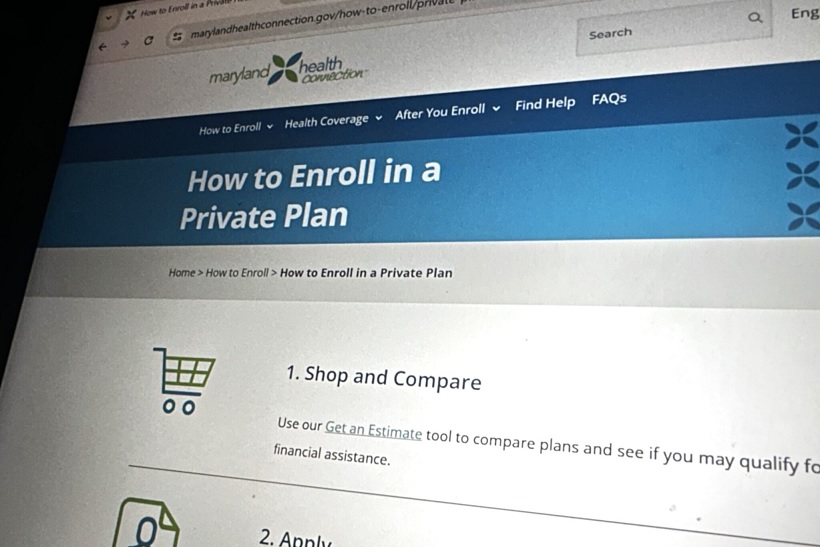
Maryland Health Insurance Changes Bring Cost Hikes and Access Challenges During Open Enrollment
TL;DR
Marylanders can gain advantage by reviewing health plans now to avoid premium hikes and coverage gaps when federal tax credits expire at year-end.
Maryland's open enrollment runs November 1 through December 31 with 13.4% average premium increases and state subsidies replacing some federal tax credits for lower-income residents.
State subsidies will help lower-income Marylanders maintain health coverage despite federal changes, preserving access to essential medical care for vulnerable populations.
DACA recipients lost marketplace access in August while young adults aged 18-37 still qualify for state subsidies that reduce premium costs.
Maryland residents navigating the current health insurance open enrollment period face a complex landscape of changes beyond just rising costs, with state officials warning that multiple federal policy shifts will create significant challenges for hundreds of thousands of residents. The combination of expiring federal tax credits, new eligibility restrictions, and upcoming enrollment timeline changes creates what Maryland Health Benefit Exchange Executive Director Michele Eberle describes as a "triple whammy" affecting approximately 300,000 Marylanders.
The most immediate concern involves premium increases averaging 13.4% for all health benefit exchange participants, driven primarily by the anticipated expiration of enhanced federal tax credits at year's end. Maryland Health Secretary Meena Seshamani emphasized that raised premiums will "continue to be a problem if Congress does not take decisive action to extend tax credits." The enhanced credits, originally created in 2021 to help people afford health insurance during the COVID-19 pandemic, have been instrumental in expanding insurance coverage and stabilizing premium costs according to health care advocates.
While the Maryland General Assembly approved state funding to partially replace the expiring federal tax credits for lower-income residents, the relief is limited and temporary. For the 2026 enrollment year, state subsidies will fully replace extended tax credits for those under 200% of the federal poverty level and cover 50% for those between 201% and 400% of poverty level. However, Eberle notes that "for those who are over 400% of the federal poverty level, we are not able to do anything, so that will be a significant impact." The state's fiscal challenges mean these subsidies may not be permanent.
Access restrictions represent another major change, particularly for immigrant communities. The Marketplace Integrity Rule from the Centers for Medicare and Medicaid Services revoked the Biden-era classification that allowed DACA recipients to be considered "lawfully present" individuals, effectively barring them from the Maryland Health Benefit Exchange. This reversal affects approximately 300 DACA recipients who had gained marketplace access during the last enrollment period. Additionally, about 18,000 lawfully present immigrants with incomes below 100% of the federal poverty level will lose tax credits that previously made their health care more affordable.
Eberle urges affected individuals to utilize their current 2025 coverage while it remains valid, stating "if you need medical care now, go get it. Utilize your health benefits this year, and don't put off things that you might have been putting off for next year." She emphasizes that options are limited for DACA recipients and undocumented immigrants due to federal policy changes.
Looking ahead, several significant enrollment process changes loom on the horizon. The current open enrollment period running from November 1 through December 31 represents the last year with an extended window before federal policy shortens it. Starting in 2026, enrollees will have only until December 31 to commit to new plans, eliminating the current January 15 deadline for coverage beginning February 1. Eberle notes that with holiday travels and celebrations, many people struggle to shop for insurance during this compressed timeframe, making the extended window particularly valuable.
Another major change scheduled for 2028 involves the elimination of auto-enrollment in coverage. Currently, marketplace participants who take no action are automatically renewed in their existing plans if available. The new federal policy will require manual re-enrollment each year, potentially creating coverage gaps for those unaware of the change. Eberle warns that "if people are not aware of that and they let their coverage lapse, then they may not be eligible until the next year to get health coverage."
Despite these challenges, some beneficial programs remain intact, including Maryland's subsidy for young adults aged 18-37, which helps lower monthly premiums and contributes to a healthier insurance pool. Eberle continues to encourage all residents to carefully review their coverage options during the current enrollment period, emphasizing that "we encourage everybody to come back in and look at their plan, make sure the plan makes sense for your needs, for your family's need." The combination of immediate cost increases and upcoming procedural changes makes thorough plan evaluation more critical than ever for Maryland health insurance consumers.
Curated from citybiz
